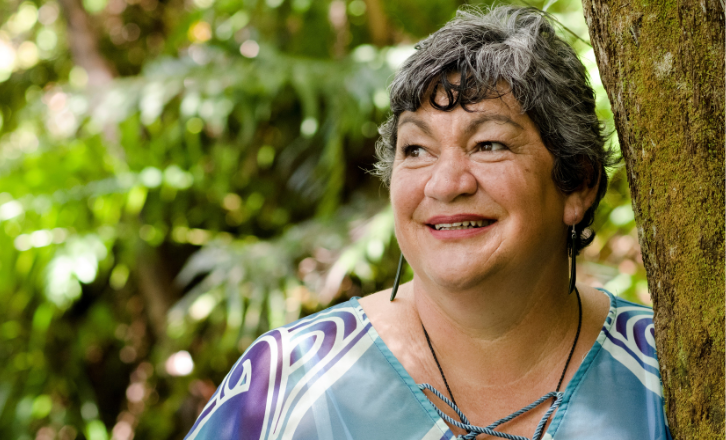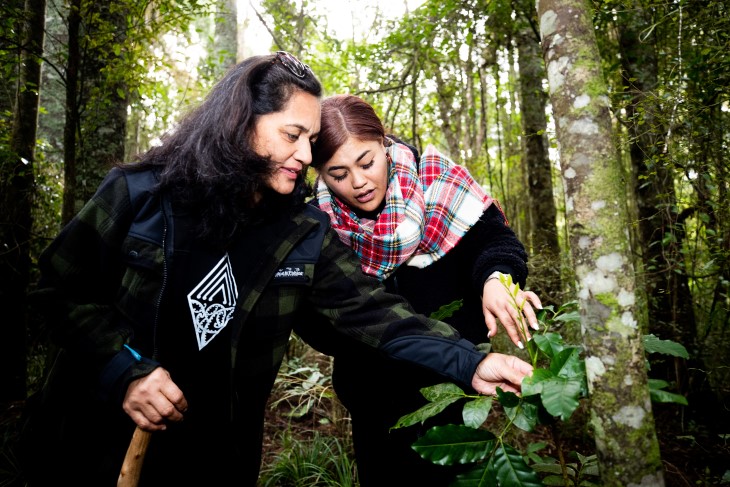Cheryl’s story: ‘To have access to rongoā is amazing’
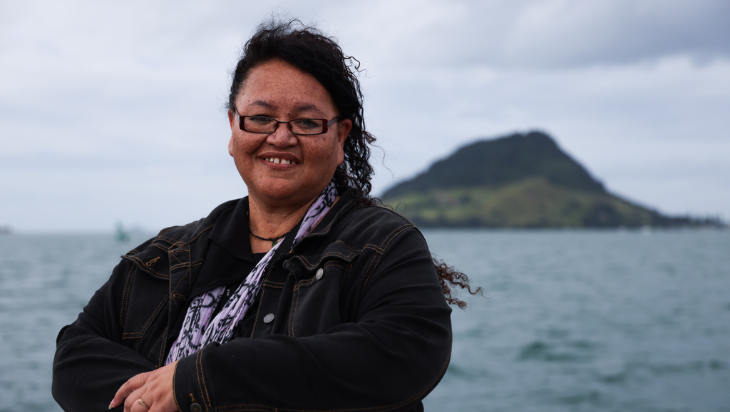
Cheryl Pakaru is an ACC Recovery Partner from Tauranga. She says the news that rongoā Māori is available for all kaimahi (staff) is a huge step for the organisation in achieving our Whāia Te Tika strategy.
Every time Cheryl Pakaru walks through the doors of her ACC office in Tauranga, she has her tūpuna (ancestors) and whānau (family) guiding her.
Cheryl works with seriously injured clients who have sustained a life changing injury. Her goal is to make a difference every day.
“When I come to mahi (work), it’s not just me who I represent,” says Cheryl, who is from Ngāiterangi, Ngāti Ranginui, Ngāti Pukenga, Tainui, and grew up living off the moana (ocean).
“It’s my tūpuna, it is my whānau. In terms of my upbringing, it was not only my parents. It was kuia and kaumatua (grandparents). Growing up with them, they certainly influenced me to be the person I am today.
“There have been times when I have needed to access EAP [Employee Assistance Programme]. It’s not only me going, it is who I represent. When I’m looking for a provider, I’m looking for someone who understands me in terms of who I am and what my values are.
“Like many Māori, I needed a holistic approach to my wellbeing.”
Cheryl is thrilled to see the commitment ACC has made to its kaimahi (staff) with rongoā Māori.
From 11 July, ACC’s Support Your Wellbeing services will expand to include rongoā Māori (traditional Māori healing).
That means ACC kaimahi can choose rongoā Māori services when they need it. The service is there to support their wellbeing in the workplace and in their personal lives.
The offering is being made alongside ACC’s existing Employee Assistance Programme (EAP) service. It is available to Māori and non-Māori kaimahi.
“As an ACC employee who is a proud Māori, I’m humbled to have this resource available,” she says.
“I also acknowledge, and I’m grateful, that there has been a huge journey behind the scenes for this to become a reality.”

Drawing strength from te ao Māori (the Māori world)
At her desk in Tauranga, Cheryl is surrounded by taonga. Each item has a purpose and a meaning.
“I have a plant which represents our connection to Papatūānuku (Mother earth). I have a pāua which was gifted by the Burwood Spinal Unit to recognise some of the mahi I had done alongside a whānau, which represents the moana,” she says.
“When I’m having a challenging kōrero with a whānau, I will look to those taonga to re-ground me or for strength to help me in my kōrero.”
Cheryl wants her connection with her culture to help her to do the best job she can for her clients.
“I come to mahi every day to make a difference,” she says. “When we help our kiritaki (clients) to live a more independent life, it’s hugely rewarding.”
That’s a good pātai (question)
Around five years ago Cheryl was working with a koro (elderly man) in the Bay of Plenty. He had sustained a spinal cord impairment from a treatment injury.
In the initial phase of his rehabilitation, there were large teams from ACC going to the Spinal Unit and to his home to support his recovery. He was appreciative of the support from a range of services.
But he asked Cheryl ‘Is rongoā Māori an option in my recovery?’ Am I able to go to my local hauora (health clinic) and access mirimiri (massage) there?’
“I thought to myself ‘that’s a good pātai’,” says Cheryl.
“For the koro that was a component that was missing in his rehabilitation plan.”
That conversation was in 2018 and at that time it wasn’t clear how clients could access rongoā Māori through ACC.
Cheryl took his query to the early beginnings of ACC’s Te Mātauranga platform to discuss it. They realised he had a point.
Since then, things have changed. In June 2020, ACC clarified its policy to ensure kiritaki could access rongoā Māori after an injury, and set about formally standing up a rongoā service.
“When rongoā Māori evolved and it was rolled out, he was the first client that I contacted and he was really proud,” says Cheryl.
“He was so pleased that others around the motu (country) would have the ability to access rongoā and have that as part of their recovery.”
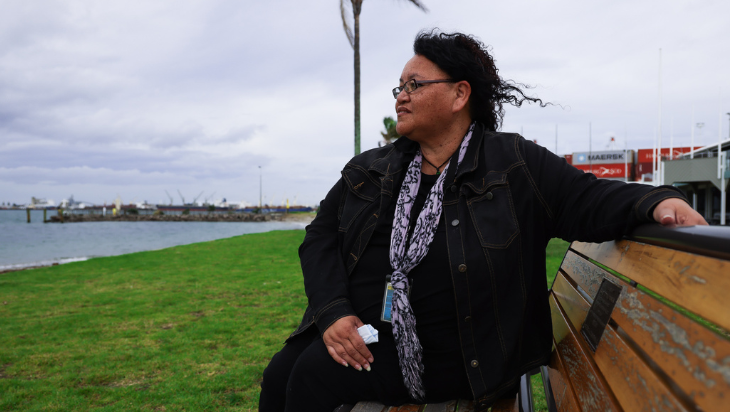
Rongoā access making a huge difference
Cheryl says having rongoā as an option for recovery has been well received in the Bay of Plenty.
“The feedback I’m hearing constantly is whānau are just in awe that rongoā is an option,” she says.
“They embrace it. To have rongoā holistically that is meeting all of their needs which is awesome.”
Rongoā Māori (traditional Māori healing) has been used by Māori for generations to support hauora (health) and oranga (wellbeing). In more recent years has become increasingly popular among non-Māori.
Rongoā Māori recognises that where an imbalance in the wairua (spirit) or mauri (vitality) of an individual exists, it will manifest in the body as an illness or ailment.
Rongoā Māori techniques are used for treating the cause of the illness, not just the injury.
Common rongoā Māori modalities include: mirimiri, romiromi (bodywork), rongoā rākau, wai rākau (herbal remedies), karakia, (prayer, incantations) and whitiwhiti kōrero (support, advice).
“I describe rongoā as a holistic means of health and wellbeing,” says Cheryl. “It helps taha wairua (spirit), te taha hinengaro (psychology), te taha tinana (physical wellbeing) and te taha whānau (family).”
“It’s a feeling of being cleansed and revitalised, and healed.”
Addressing inequality in accessing ACC
Our data shows that Māori are 2.5 times more likely to experience a serious injury, but 25 percent less likely to make an ACC claim.
We are committed to changing this.
The access to rongoā Māori is making a difference.
As at the end of June 2022, we had approved rongoā Māori for around 2,300 claims and funded more than 15,200 sessions
One in five of those clients hadn’t previously received other forms of ACC care or treatment before benefitting from rongoā. And now ACC staff have the same access.
Michelle Murray is our Tumu Pae Ora. She is very proud of this initiative.
“In the past two years, we’ve supported more than 2,000 clients through traditional Māori healing – it’s fantastic to now offer that same choice for our own kaimahi,” says Michelle.
“We have set the stage for increased trust and meaningful change – a new chapter in ACC’s relationship with Māori that has already begun.”
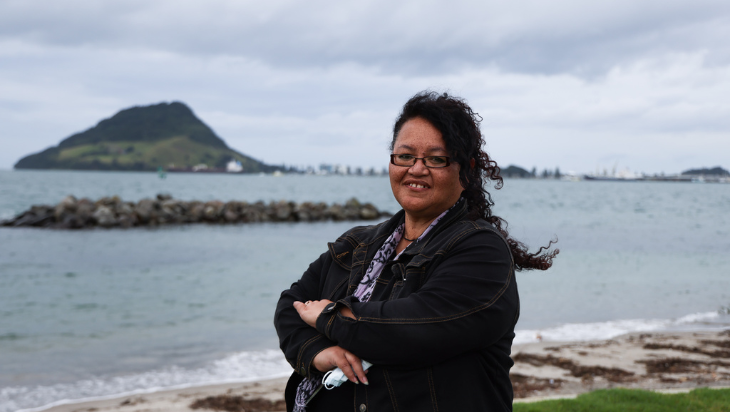
ACC and rongoā Māori
- Our data shows that Māori are more likely to sustain a serious, life-changing injury but are less likely to access ACC services
- Our data tells us Māori are 25 percent less likely to make a claim with us than non-Māori
- As at the end of June 2022, we had approved rongoā Māori for around 2,300 claims and funded more than 15,200 sessions
- One in five of those clients hadn’t previously received other forms of ACC care or treatment before benefitting from rongoā
- Rongoā Māori is available to clients on request and can be used as standalone care or in conjunction with other treatment
- There are around 70 ACC-registered rongoā Māori practitioners in New Zealand, from Kaitāia to Invercargill
- Rongoā Māori is now available to support ACC staff – with up to four sessions allocated to each staff member.



